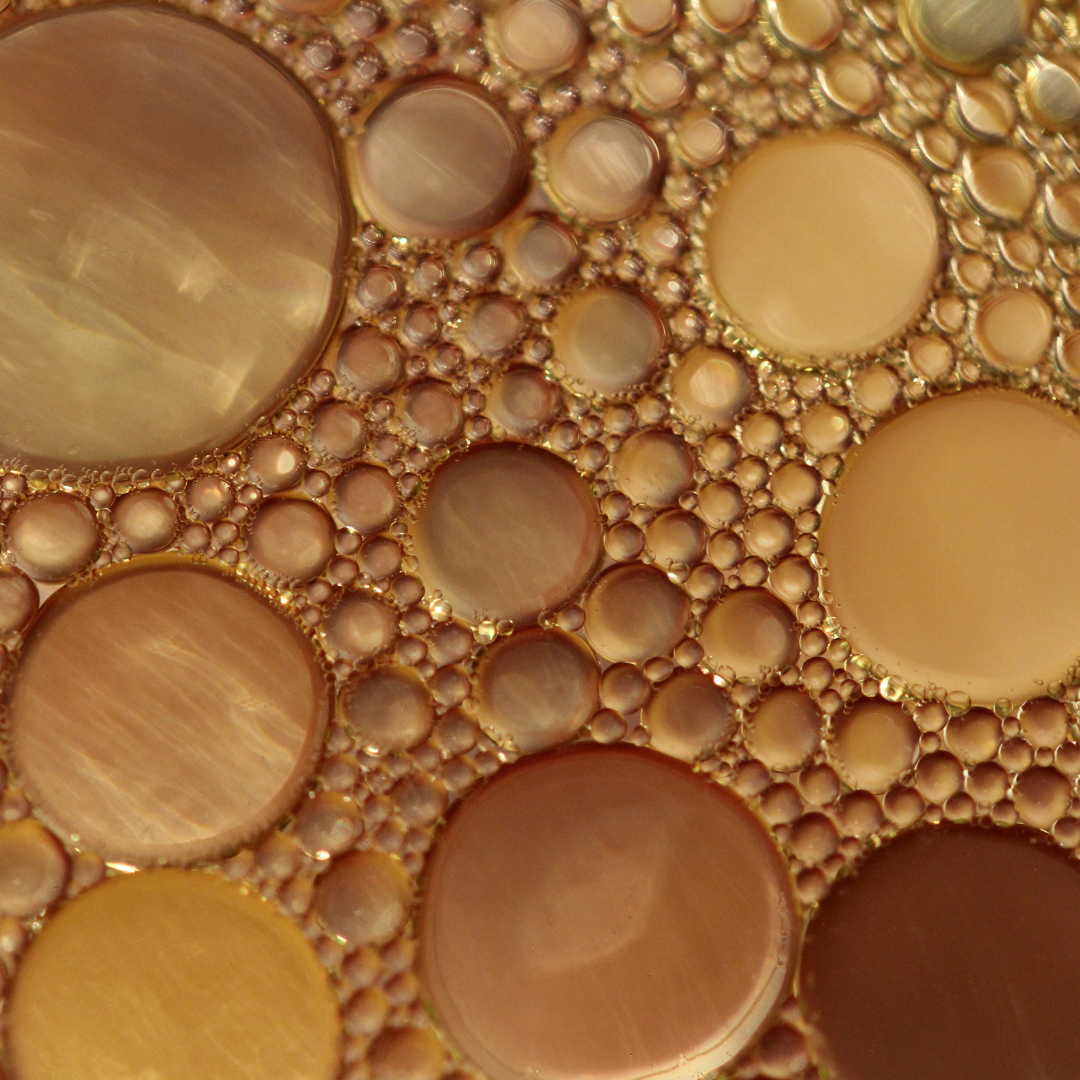
What are vegetable oils and what are they used for?
Share
Vegetable oils are often used for their nutritional, medicinal and cosmetic properties. Natural substances have become essential to our lives, whether in cooking, aromatherapy or beauty. This article examines the different vegetable oils, their origins and the many ways in which they can enhance our well-being.
Vegetable oils are natural products with numerous benefits for the skin. Depending on skin type and needs, they can be used to moisturize, nourish, protect and soothe.
The origins of vegetable oils
Vegetable oils are obtained from fruits, nuts, oilseeds or other plant parts. The extraction process varies according to the type of plant, but generally involves cold pressing or solvent extraction to best preserve the oils' beneficial properties. Some examples of popular vegetable oils include olive oil, coconut oil, sweet almond oil,jojoba oil and argan oil.

Some vegetable oils and their uses
- Olive oil
Olive oil is famous for its antioxidant and anti-inflammatory properties. It is widely used in cooking for its cardiovascular benefits. It is also an excellent skin moisturizer and can be applied to nourish the hair.
- Coconut oil
Coconut oil is versatile and prized for its antibacterial properties. It is used in cooking, hair care and cosmetics, providing effective hydration and a natural treatment for damaged hair.
- Sweet almond oil
Known for its mildness, sweet almond oil is used in aromatherapy and cosmetics. It is reputed to soothe dry, irritated skin, while being non-aggressive to sensitive skin.
- Jojoba oil
Jojoba oil, extracted from the seeds of the jojoba plant, is similar to the skin's natural sebum. It is often used in skincare products to nourish the skin without clogging pores, and is nourishing fordry hair.
- Argan oil
Native to Morocco, argan oil is rich in essential fatty acids and vitamin E. It is prized for its moisturizing and anti-aging properties, and is often used in skin and hair care products.
- Evening primrose oil
This oil is extracted from the seeds of the evening primrose plant. It is known for its revitalizing properties and is often used to relieve the symptoms of premenstrual syndrome and menopause.
- Carrot oil
Carrot oil is derived from the maceration of carrots, and is renowned for its benefits. By forming a protective barrier, the oil prevents transepidermal water loss, promoting soft, supple, well-moisturized skin. Its properties also include an anti-aging action and a perfect tan, thanks to its high antioxidant content!

Culinary applications
In addition to their uses in personal care, vegetable oils are also recognized in the kitchen for enhancing the flavor of dishes and providing essential nutrients. Olive oil, for example, is a key component of Mediterranean cuisine, while sesame oil is frequently used in Asian cooking. Not only do these oils provide delicious flavor, they can also contribute to a balanced diet.
Health benefits
Vegetable oils are often considered key components of a healthy diet. Essential fatty acids, such as omega-3 and omega-6, are vital for cardiovascular health, brain function and healthy skin. By incorporating them into your diet, you can benefit from the exceptional nutritional properties of a variety of vegetable oils.
Vegetable oils are also rich in vitamin E, an antioxidant. These protect cells from free radicals, which can contribute to the development of diseases such as cancer and heart disease. Flaxseed oil, for example, has been shown to be beneficial for heart and brain health.
Cosmetics and personal care applications
Due to their many properties, vegetable oils have become popular ingredients in the skin and hair care industry. For example, rosehip oil is known for its regenerating effects on the skin, helping to reduce scars and wrinkles. Similarly, avocado oil is rich in vitamins and fatty acids, making it an excellent option for hair and skin.
Precautions to take
Although vegetable oils offer many benefits, it's important to use them with care. Some people may be allergic to certain oils, so a skin test is recommended before regular use.
To preserve their nutritional properties, they must be stored in a cool, dry place, away from light. If these conditions are not respected, the oils will deteriorate, making their use toxic !
To best protect the oils and avoid altering their effects, it is important to follow the storage instructions.
In short, vegetable oils offer a variety of benefits for health, beauty and cooking. Their many applications make them a must-have in many households around the world. Vegetable oils are real natural treasures that should be included in your daily life, whether to add flavor to your dishes, nourish your skin, soothe skin irritations, promote healing or revitalize your hair.
You can take full advantage of their benefits while adopting a more natural, holistic approach to health and beauty, by incorporating them wisely.
Find out more about vegetable and essential oils
We tend to confuse essential oils and vegetable oils, but even if they have similar benefits, their creation differs:
Essential oils are concentrated aromatic substances extracted from plants by distillation.
They have antioxidant, antibacterial and anti-inflammatory properties. Essential oils can be applied to the skin, diffused or inhaled.
Find out more about vegetable butters
Vegetable butter is made from solid fats extracted from nuts or seeds. The plant material is ground or left to macerate to recover the substance. Butter is rich in saturated fatty acids, which nourish and protect the skin. Shea butter, for example, is generally used for cutaneous application, but can also be used to treat dry, damaged hair, moisturizing the scalp right down to the ends.
